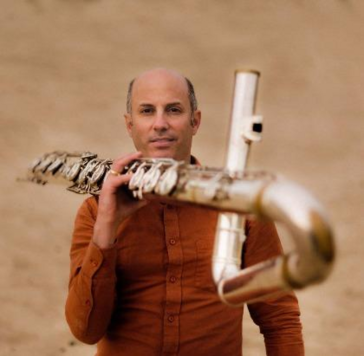We report research into the evolvement of a hybrid learning environment where education, companies and government successfully cooperate. This hybrid learning environment—one of the latest inventions in curriculum design—is special because it was neither intended nor planned by the parties involved. With some self-astonishment, the participants in this research experienced a growing acknowledgement of their emerging educational creation, aside from the experience of and appreciation for their cooperation and the increasing turnover. With a bricolage research approach within the scope of a rhizomatic perspective on becoming, a multivocal perspective on the evolvement of the learning environment was pursued. In emphasizing the historical evolvement of the learning environment, our findings challenge the tradition of drawing board design, accompanied by an appeal for re-appreciating professional craftsmanship. In addition, some reflections regarding the research are discussed.
DOCUMENT

The energy management systems industry in the built environment is currently an important topic. Buildings use about 40% of the total global energy worldwide. Therefore, the energy management system’s sector is one of the most influential sectors to realize changes and transformation of energy use. New data science technologies used in building energy management systems might not only bring many technical challenges, but also they raise significant educational challenges for professionals who work in the field of energy management systems. Learning and educational issues are mainly due to the transformation of professional practices and networks, emerging technologies, and a big shift in how people work, communicate, and share their knowledge across the professional and academic sectors. In this study, we have investigated three different companies active in the building services sector to identify the main motivation and barriers to knowledge adoption, transfer, and exchange between different professionals in the energy management sector and explore the technologies that have been used in this field using the boundary-crossing framework. The results of our study show the importance of understanding professional learning networks in the building services sector. Additionally, the role of learning culture, incentive structure, and technologies behind the educational system of each organization are explained. Boundary-crossing helps to analyze the barriers and challenges in the educational setting and how new educational technologies can be embedded. Based on our results, future studies with a bigger sample and deeper analysis of technologies are needed to have a better understanding of current educational problems.
DOCUMENT

The role and ethics of professionals in business and economics have been questioned, especially after the financial crisis of 2008. Some suggest a reorientation using concepts such as craftsmanship. In this article, I will explore professional practices within the context of behavioural theory and business ethics. I suggest that scholars of behavioural theory need a strategy to deal with normative questions to meet their ambition of practical relevance. Evidence-based management (EBMgt), a recent behavioural approach, may assist business ethics scholars in understanding how professionals infer ‘evidence’ to make decisions. For a professional, ethical issues are an integral part of decision-making at critical moments. As reflective practitioners, they develop insights related to ethical concerns when collecting and assessing evidence within decision-making processes.
DOCUMENT

Students in Higher Music Education (HME) are not facilitated to develop both their artistic and academic musical competences. Conservatoires (professional education, or ‘HBO’) traditionally foster the development of musical craftsmanship, while university musicology departments (academic education, or ‘WO’) promote broader perspectives on music’s place in society. All the while, music professionals are increasingly required to combine musical and scholarly knowledge. Indeed, musicianship is more than performance, and musicology more than reflection—a robust musical practice requires people who are versed in both domains. It’s time our education mirrors this blended profession. This proposal entails collaborative projects between a conservatory and a university in two cities where musical performance and musicology equally thrive: Amsterdam (Conservatory and University of Amsterdam) and Utrecht (HKU Utrechts Conservatorium and Utrecht University). Each project will pilot a joint program of study, combining existing modules with newly developed ones. The feasibility of joint degrees will be explored: a combined bachelor’s degree in Amsterdam; and a combined master’s degree in Utrecht. The full innovation process will be translated to a transferable infrastructural model. For 125 students it will fuse praxis-based musical knowledge and skills, practice-led research and academic training. Beyond this, the partners will also use the Comenius funds as a springboard for collaboration between the two cities to enrich their respective BA and MA programs. In the end, the programme will diversify the educational possibilities for students of music in the Netherlands, and thereby increase their professional opportunities in today’s job market.
